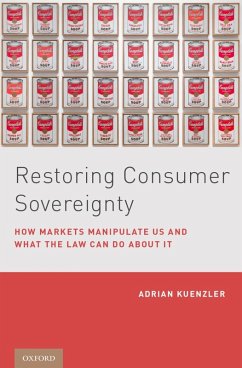In today's highly concentrated marketplaces, social and cultural values--such as the lifestyle connotations that manufacturers and sellers confer upon their goods--often shape consumers' prior beliefs and attitudes and affect the weight given to new information by consumers who make purchasing decisions in the marketplace. Such consumer goods present the largely unexplored problem of contemporary market regulatory theory according to which an increased amount of product differentiation has rendered everyday purchasing decisions such as the choice between an iPhone or a Samsung Galaxy Note as much a matter of personal identity rather than merely one of tangible product attributes. The basic challenge for market regulators and courts in such an environment is to make markets work effectively by providing a more efficient exchange of information about consumer preferences relating to tangible product features, functions, and quality. This book demonstrates that improved legal policy can assist consumers and increase market efficiency. It acknowledges that once particular beliefs held by consumers have become culturally or socially entrenched, they are very difficult to change. What is more, changing such beliefs is no longer simply a matter of educating people through the provision of additional information. Developing a novel framework through a detailed analysis of case law relating to consumer goods markets, this book delivers an accessible introduction to the law and economics of consumer decision-making, and a forceful critique of contemporary market regulatory policy.
Dieser Download kann aus rechtlichen Gründen nur mit Rechnungsadresse in A, B, BG, CY, CZ, D, DK, EW, E, FIN, F, GR, HR, H, IRL, I, LT, L, LR, M, NL, PL, P, R, S, SLO, SK ausgeliefert werden.


